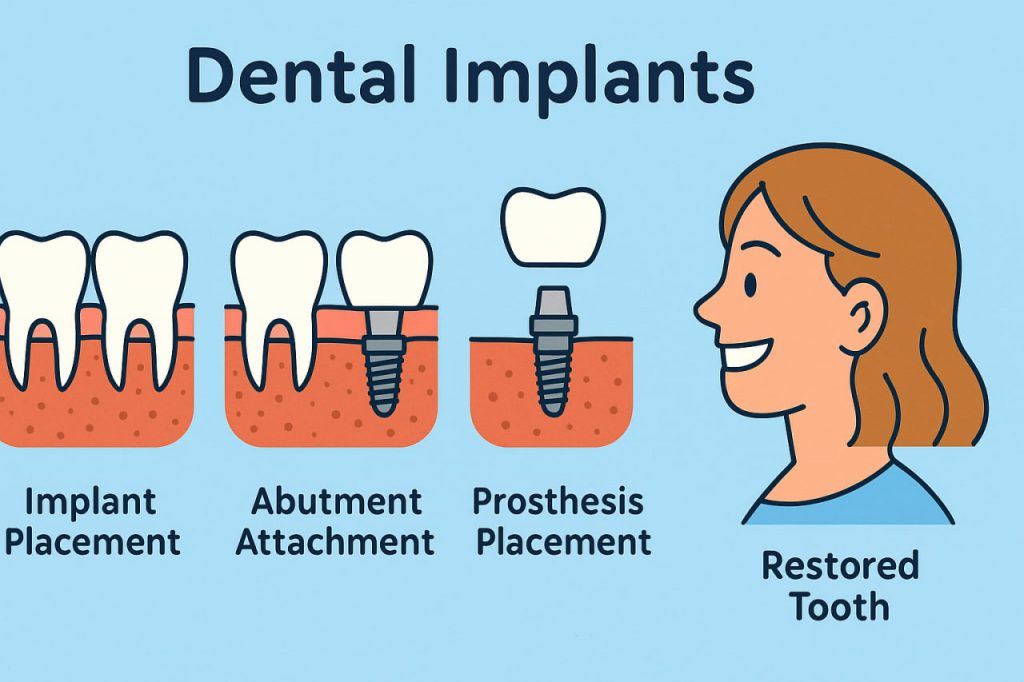Dental implants are artificial tooth roots, typically made of titanium, that are surgically placed into the jawbone to support replacement teeth, such as crowns, bridges, or dentures. They are a long-lasting and highly functional solution for individuals who have lost one or more teeth due to injury, decay, or disease.
Unlike traditional dentures, implants are permanently fixed in the mouth, offering stability and a natural appearance.
How the Procedure Works
Dental implantation involves several stages:
- Initial consultation – Includes X-rays or 3D scans to assess bone health and design a treatment plan.
- Implant placement – A titanium post is inserted into the jawbone under local anesthesia.
- Osseointegration – Over 3–6 months, the bone grows around the implant, anchoring it securely.
- Abutment attachment – A connector (abutment) is fixed to the implant once healing is complete.
- Prosthesis placement – A custom-made crown, bridge, or denture is attached, restoring full tooth function.
Benefits of Dental Implants
- Durability – With proper care, implants can last 15–25 years or more.
- Bone preservation – Implants stimulate the jawbone, preventing bone loss after tooth removal.
- Improved speech and chewing – Unlike loose dentures, implants do not shift in the mouth.
- Natural appearance – The final crown is color-matched and shaped to blend with surrounding teeth.
- Boosted self-confidence – Many patients report significant improvement in quality of life.
Who Is a Good Candidate?
Ideal candidates for implants should have:
- Good general health
- Healthy gums
- Sufficient jawbone density
- No untreated periodontal disease
In cases of bone loss, bone grafting may be required before implant placement.
Risks and Considerations
While success rates are high (around 95–98%), implants can fail due to:
- Poor oral hygiene
- Smoking
- Uncontrolled diabetes
- Infections or trauma
Regular dental check-ups and proper oral care are essential for long-term success.
Costs and Alternatives
Dental implants can be costly, especially if multiple teeth are involved. However, their durability often makes them more cost-effective over time compared to dentures or bridges.
Alternatives include:
- Removable dentures – Less invasive but less stable
- Dental bridges – Fixed, but require altering neighboring teeth
Glossary
- Titanium – A strong, biocompatible metal commonly used in implants.
- Osseointegration – The process by which bone fuses with an implant.
- Abutment – A connector between the implant and the final restoration.
- Bone grafting – A procedure to rebuild jawbone for better implant support.
- Periodontal disease – Gum disease that can lead to tooth and bone loss.


